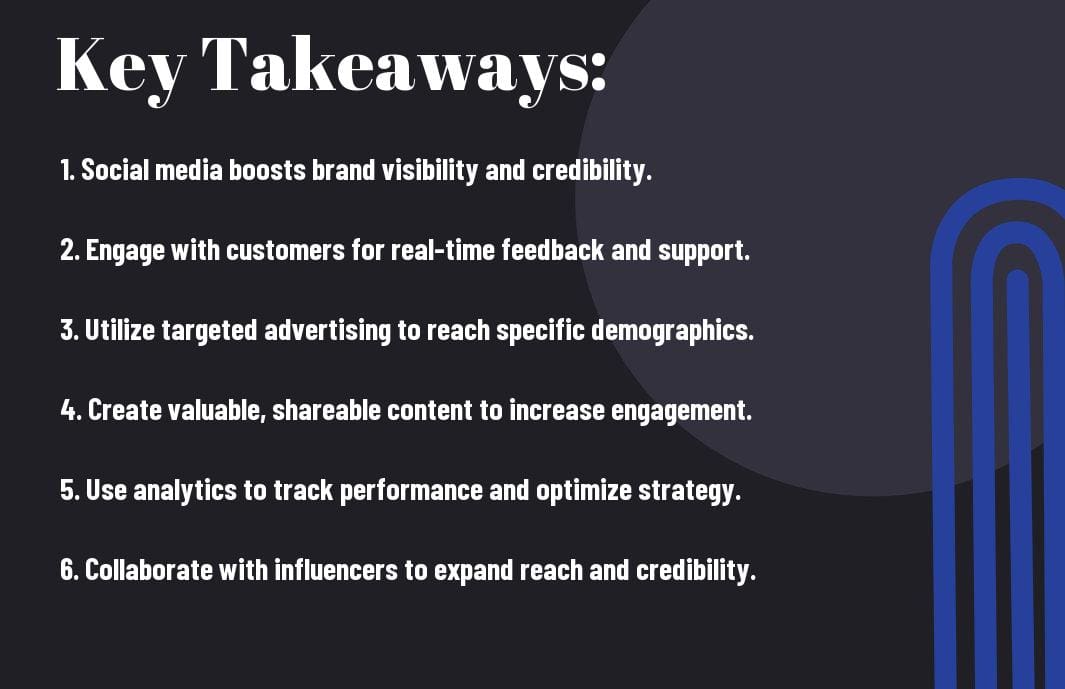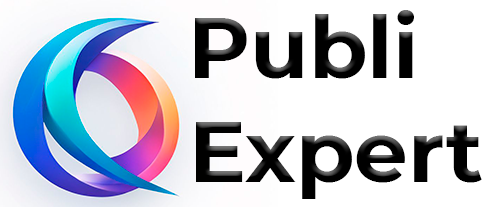Social Media has revolutionized the way businesses market their products and services. In today’s digital age, having a strong online presence is crucial for success. Leveraging the power of social media can help businesses reach a wider audience, build brand awareness, and drive sales. However, with great opportunity comes great responsibility. It is vital for businesses to understand the importance of a well-planned social media marketing strategy to avoid potential pitfalls and maximize success.
Key Takeaways:
- Consistent Branding: Ensure your brand image, messaging, and tone are consistent across all social media platforms to build a strong brand identity.
- Engagement is Key: Interact with your audience through comments, likes, and shares to increase engagement and build a loyal following.
- Data-Driven Decisions: Use analytics tools to track performance metrics and make informed decisions on content strategy and advertising efforts.

Understanding The Social Media Landscape
The world of social media is vast and ever-evolving, with new platforms emerging and existing ones constantly adapting. To harness the power of social media for your business, it is crucial to have a solid understanding of the social media landscape.
Overview of Popular Social Media Platforms
The media landscape is dominated by several key social media platforms that have millions, or even billions, of active users. Facebook, Instagram, Twitter, LinkedIn, and YouTube are some of the most popular platforms, each catering to different demographics and interests. Facebook, for example, is great for reaching a wide audience, while Instagram is more visual and appeals to a younger demographic. Twitter is known for its real-time updates, LinkedIn is geared towards professionals, and YouTube is the go-to platform for video content.
Identifying the Right Platforms for Your Business
Media platforms vary in terms of user demographics, content format, and engagement levels. It is necessary to identify the right platforms for your business based on your target audience and marketing goals. Choosing the right platforms can mean the difference between a successful social media strategy and wasted resources. Take the time to research and understand where your audience spends their time online, and tailor your approach to each platform accordingly.
Overview
Understanding the social media landscape is crucial for any business looking to leverage the power of social media marketing. By familiarizing yourself with the popular platforms and identifying the ones that align with your business objectives, you can create a targeted and effective social media strategy. Stay informed about the latest trends and updates in the social media world to stay ahead of the competition and make the most of your online presence.
Building a Strategic Social Media Marketing Plan
Once again, we come to the crucial step of creating a powerful social media marketing plan for your business. A well-thought-out strategy is crucial for leveraging the full potential of social media to achieve your business goals.
Setting Clear Marketing Objectives
Objectives: Setting clear marketing objectives is the foundation of any successful social media strategy. Whether your goal is to increase brand awareness, drive website traffic, generate leads, or boost sales, having specific, measurable, achievable, relevant, and time-bound objectives is key. By defining what you want to accomplish, you can better tailor your social media activities to meet those goals.
Audience Analysis and Targeting Strategies
On Audience Analysis and Targeting Strategies: Understanding your target audience is crucial for creating content that resonates with them. By conducting thorough audience research, including demographics, interests, behaviors, and pain points, you can develop targeted messaging that speaks directly to their needs and preferences. Implementing effective targeting strategies will help you reach the right people with the right content at the right time.
Building a Strategic Social Media Marketing Plan
Content Planning and Scheduling
Marketing Content Planning and Scheduling: Developing a content calendar and scheduling posts in advance can help you maintain a consistent and cohesive social media presence. By planning your content ahead of time, you can ensure that your posts align with your overall marketing objectives and resonate with your target audience. Additionally, scheduling posts strategically can help you reach your audience when they are most active on social media, maximizing engagement and visibility.
By Understanding the importance of each component in building a strategic social media marketing plan, you can unlock the power of social media to drive business growth. Setting clear objectives, analyzing your audience, planning compelling content, and scheduling posts strategically are crucial elements that will help you achieve success in the competitive digital landscape.
Crafting Engaging Content
To create a strong presence on social media, businesses must focus on crafting engaging content that resonates with their audience. This involves a combination of storytelling, multimedia elements, and maintaining consistency with brand voice. By mastering these strategies, businesses can unlock the power of social media marketing to drive brand awareness, engagement, and ultimately, conversions.
The Art of Storytelling on Social Media
Any successful social media strategy begins with the art of storytelling. Stories have a unique ability to capture attention, evoke emotions, and create connections with the audience. When crafting content for social media, businesses should focus on telling authentic and compelling stories that resonate with their target audience. Whether through behind-the-scenes glimpses, customer testimonials, or brand narratives, storytelling humanizes the brand and makes it more relatable to followers.
Leveraging Multimedia for Greater Impact
An effective way to enhance engagement on social media is by leveraging multimedia elements such as images, videos, and infographics. These visually appealing assets grab the audience’s attention and convey information in a more engaging way. Businesses can use multimedia to showcase products, demonstrate services, or share visual stories that resonate with their audience. Incorporating multimedia into social media posts can help increase reach, boost engagement, and drive traffic to the business’s website.
More about Leveraging Multimedia for Greater Impact: Visual content is more likely to be shared and remembered by social media users compared to text-only posts. By incorporating images and videos into their social media strategy, businesses can create a more visually appealing feed that stands out in a crowded digital landscape.
Consistency and Brand Voice
Consistency in branding and maintaining a strong brand voice is crucial for building recognition and trust among followers. When crafting content for social media, businesses should ensure that their tone, style, and messaging align with their brand identity. By establishing a consistent brand voice, businesses can create a cohesive and recognizable presence across all social media platforms. This helps to reinforce brand values, build brand loyalty, and establish a strong connection with the audience.
More about Consistency and Brand Voice: Consistent branding helps to create a unified brand image and reinforces the business’s messaging across all touchpoints. By maintaining a consistent brand voice, businesses can establish credibility, build trust, and differentiate themselves from competitors in the digital space.
Growth Hacking Techniques
Engagement Tactics To Boost Visibility
All successful social media marketing strategies begin with engagement tactics to boost visibility. Hacking into the principles of engagement involves creating high-quality content that resonates with your target audience, encouraging likes, shares, and comments. Utilize interactive polls, quizzes, and contests to encourage participation and drive conversation. Respond promptly to comments and messages to show that your brand is active and attentive. Collaborate with other businesses or influencers to expand your reach and engage with new audiences.
Utilizing Influencers and Brand Ambassadors
Influencers and brand ambassadors can be powerful allies in your social media growth strategy. These individuals have a loyal following who trust their recommendations and opinions. By partnering with influencers in your industry, you can reach a broader audience and increase brand awareness. Authentic collaborations with influencers can bring credibility and trust to your brand, leading to higher engagement and conversions.
A strategic approach to utilizing influencers and brand ambassadors involves identifying individuals whose values align with your brand’s and whose followers match your target audience. Establish clear objectives for the partnership and provide influencers with the creative freedom to showcase your product or service in an authentic way. Monitor the performance of influencer campaigns closely to gauge their impact on your overall social media marketing strategy.
Paid Advertising Strategies: When and How to Use Them
Boost your social media marketing efforts with paid advertising strategies strategically. While organic reach is crucial, paid advertising can provide an additional boost to reach a larger audience and drive immediate results. Identify key metrics and goals for your paid campaigns to measure their effectiveness and optimize your budget allocation. Utilize the targeting options available on social media platforms to reach your ideal customers based on demographics, interests, and online behavior.
Another important aspect of utilizing paid advertising strategies is to test different ad formats, visuals, and copy to determine what resonates best with your audience. Constantly analyze and adjust your paid campaigns to enhance their performance and maximize your return on investment. Paid advertising can complement your organic efforts and help you achieve specific objectives such as lead generation, website traffic, or product sales.
Measuring Success and Analyzing Performance
Many businesses invest significant resources in their social media marketing efforts, but how can they truly measure the success of these campaigns? Tracking and analyzing performance is necessary to understand what is working and what needs adjustment. By utilizing the right key performance indicators (KPIs), businesses can gain valuable insights into the effectiveness of their social media strategies.
Key Performance Indicators (KPIs) for Social Media
Measuring the success of your social media marketing efforts requires identifying and tracking the right KPIs. Some common KPIs for social media include engagement metrics such as likes, shares, comments, and clicks. These metrics can provide a clear picture of how well your content is resonating with your audience and driving interactions. Additionally, conversion metrics such as lead generation, sales, and website traffic can help measure the impact of your social media campaigns on your bottom line.
Tools and Techniques for Tracking Engagement
To effectively track engagement on social media, businesses can utilize a variety of tools and techniques. Social media analytics platforms like Hootsuite, Sprout Social, and Google Analytics offer in-depth insights into audience demographics, engagement metrics, and campaign performance. Techniques such as A/B testing, social listening, and sentiment analysis can also provide valuable data on audience preferences and behavior.
To ensure accurate tracking of engagement, businesses should regularly monitor and analyze their social media metrics. By staying informed about which content resonates most with their audience and which platforms drive the most engagement, businesses can optimize their social media strategies for maximum impact.
Adapting Your Strategy Based on Analytics
The key to successful social media marketing lies in the ability to adapt strategies based on analytics and performance data. By regularly reviewing and analyzing social media metrics, businesses can identify trends, patterns, and areas for improvement. This data-driven approach allows businesses to make informed decisions about content creation, audience targeting, and platform selection to maximize their social media success.
Media monitoring tools and performance dashboards can help businesses visualize and interpret their social media analytics more effectively. By leveraging these tools, businesses can easily track key metrics, measure campaign success, and make real-time adjustments to optimize their social media performance.
Risk Management in Social Media Marketing
Navigating Social Media Policies and Regulations
With the rapid evolution of social media platforms, businesses must stay informed about the latest policies and regulations to ensure compliance and mitigate risks. It is crucial for businesses to have a comprehensive understanding of the guidelines set forth by each social media platform they engage with, as violations can result in account suspension or even legal consequences. By establishing clear internal policies that align with external regulations, businesses can protect themselves from potential pitfalls and maintain a positive online presence.
Reputation Management and Crisis Response
Media. In the dynamic landscape of social media, reputation management is more important than ever. A negative comment or viral post can significantly impact a brand’s image and bottom line. Therefore, businesses must proactively monitor their online presence and respond swiftly and effectively to any crises that may arise. Engaging with customers transparently and authentically can help rebuild trust and mitigate damage to the brand’s reputation.
Navigating the realms of social media risk management requires a proactive approach and a thorough understanding of the potential dangers and opportunities that come with online engagement. By staying informed, implementing robust policies, and actively managing their online reputation, businesses can unlock the full potential of social media marketing while safeguarding their brand’s integrity.
Leveraging Social Media for Customer Service and Retention
Your 💥🔰💥Unlocking the Power of Social Media Marketing for … business can harness the potential of social media not just for marketing, but also for enhancing customer service and improving retention rates. Social media platforms offer a direct line of communication between your brand and your customers, allowing for quick responses to inquiries, complaints, and feedback.
The Role of Social Media in Customer Engagement
Social media plays a crucial role in customer engagement by providing a platform for real-time interactions. Customers expect prompt and personalized responses, making it necessary for businesses to be actively present on social media to address customer needs. By listening and responding to customers on platforms like Facebook, Twitter, and Instagram, businesses can strengthen relationships and build trust with their audience.
Building Loyalty Through Community Management
An effective community management strategy is key to building customer loyalty and increasing retention rates. By fostering a sense of belonging and engagement within online communities related to your brand, you can create a loyal customer base that feels connected to your brand on a deeper level. Encouraging user-generated content, running exclusive promotions for community members, and organizing virtual events are all ways to nurture this sense of community and loyalty.
Future Trends in Social Media Marketing
For businesses looking to stay ahead in the ever-evolving landscape of social media marketing, it’s crucial to be aware of emerging trends and technologies. It’s important to constantly adapt strategies to meet the changing demands of the digital world. To examine deeper into this topic, check out An Expert’s Guide to Unlocking the Power of Social Media Marketing.
Staying Ahead of the Curve with Emerging Platforms
Staying ahead of the curve means identifying and leveraging emerging platforms before they become saturated. Platforms like TikTok, Clubhouse, or even niche social networks can provide unique opportunities to engage with audiences in new and innovative ways. By being proactive in exploring these platforms, businesses can tap into fresh audiences and differentiate themselves from competitors.
Integrating New Technologies: AR, VR, and AI
Integrating new technologies such as Augmented Reality (AR), Virtual Reality (VR), and Artificial Intelligence (AI) can revolutionize social media marketing strategies. With AR filters and lenses, VR immersive experiences, and AI-powered chatbots, businesses can offer more engaging, personalized, and interactive content to their audiences. These technologies hold the power to enhance user experiences, drive conversions, and boost brand loyalty in ways that traditional methods cannot match.
Summing up
Taking this into account, it is clear that social media marketing can be a powerful tool for businesses looking to connect with their target audience, build brand awareness, and drive sales. By utilizing the right strategies, businesses can unlock the full potential of social media platforms to reach a wider audience and engage with customers in a more meaningful way.
Ultimately, understanding the importance of social media marketing and investing time and resources into creating a strong online presence can set a business apart from its competitors and pave the way for long-term success. Incorporating social media marketing into your overall marketing strategy can help you build brand loyalty, increase your customer base, and drive business growth in today’s digital age.
FAQ
Q: What is social media marketing?
A: Social media marketing is the use of social media platforms to connect with your audience to build your brand, increase sales, and drive website traffic.
Q: Why is social media marketing important for businesses?
A: Social media marketing is important for businesses as it allows for increased brand recognition, improved brand loyalty, higher conversion rates, and better search engine rankings.
Q: How can social media marketing help in expanding the reach of a business?
A: Social media marketing can help in expanding the reach of a business by allowing you to reach a larger audience through targeted advertising, engaging content, and influencer partnerships.
Q: What are the key components of a successful social media marketing strategy?
A: The key components of a successful social media marketing strategy include setting specific goals, identifying your target audience, creating engaging content, monitoring analytics, and maintaining a consistent brand voice.
Q: How can businesses measure the success of their social media marketing efforts?
A: Businesses can measure the success of their social media marketing efforts by tracking key performance indicators (KPIs) such as engagement rates, website traffic, conversion rates, and ROI from specific campaigns.
Q: What are some common mistakes to avoid in social media marketing?
A: Some common mistakes to avoid in social media marketing include inconsistent posting, ignoring customer feedback, not utilizing analytics, focusing on quantity over quality, and not engaging with your audience.
Q: How can businesses stay updated with the latest social media trends and algorithms?
A: Businesses can stay updated with the latest social media trends and algorithms by following industry leaders, attending conferences and webinars, joining online communities, and regularly reviewing social media platform updates.




